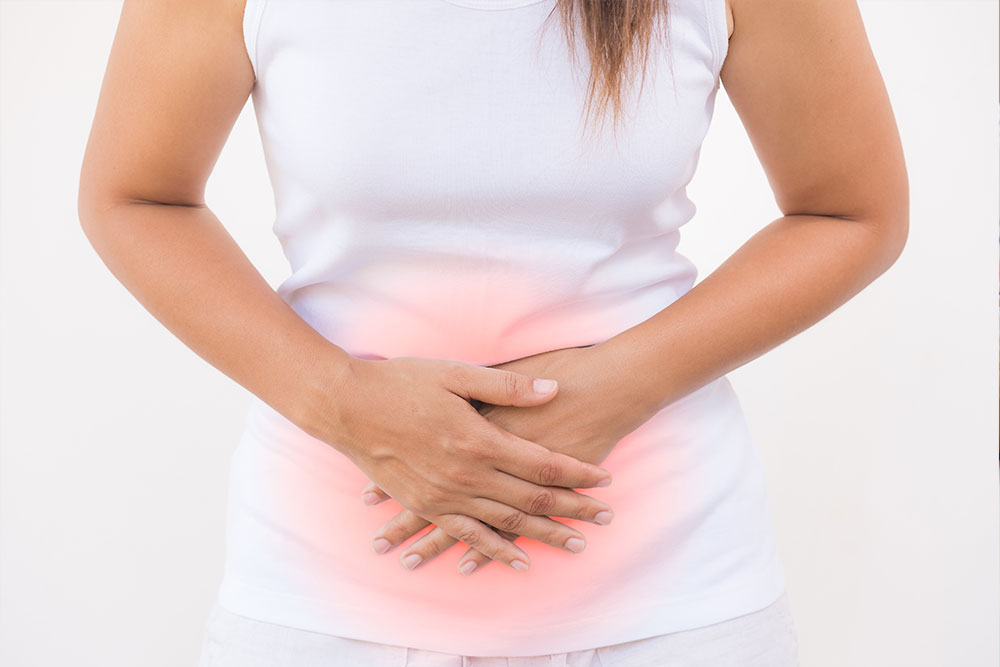From adolescence up until you reach menopause, your menstrual cycle plays a huge part in your life. It has an effect on your mood, how you want to go about planning a family, and even any irregularities in health, to name a few. Considering that most of us grow accustomed to our monthly cycle, it tends to become just another aspect of daily life, making it is quite possible to slack off and not pay attention to how your menstrual cycle is progressing. However, tracking your period, no matter the age, can help you in many ways. Allow us to demonstrate why.

Adolescence To Teens
This is the age where you have your first period, typically around 12 or 13 years. However, they are quite irregular for about the next three years as the hypothalamic-pituitary-ovarian (HPO) axis, which regulates the reproductive system, takes time to mature. “Tracking your period at this stage is not advisable as the cycles will not be regular,” says Dr Anjali Kumar, director and senior consultant, Department of Obstetrics and Gynaecology, CK Birla Hospital, Gurgaon, and director, The Gynae Clinic, Gurgaon. It’s a whole new experience and you may notice a lot of changes, especially physically, like weight gain, and acne.
Dr Vikram Shah, MD, obstetrician and gynaecologist, Ashvini Hospital, Mumbai, and Raheja Fortis, Mumbai, suggests tracking other physical symptoms like headaches, cramps, and heavy and painful periods, whenever you get them at this age. This will help you better understand your cycle as you move forward.
At this stage, if you notice symptoms such as rapid changes in weight, abnormal bleeding, or even excessive facial hair growth, it could be a sign of a hormonal imbalance or an underlying disease. Dr Kumar recommends leading a healthy and active lifestyle to prevent these health complications.

Twenties And Thirties
By the time you’re in your 20s and 30s, your periods should be regular. Ideally a normal cycle lasts from 28-35 days, but getting your period before 21 days or after 35 days is considered an irregular cycle. A regular cycle means you are ovulating. “If you are trying to avoid a pregnancy, knowing your ovulation period can help you. This method of contraception is also known as the Natural Method of Birth Control or the Fertility Awareness Method. On the other hand knowing your fertile period helps in planning a pregnancy,” states Dr Asha Dalal, mentor, Department of Obstetrics and Gynaecology, Sir HN Reliance Foundation Hospital, Mumbai.
She goes on to suggest that when you keep a track of your period, it not only helps you understand the length of your cycle (from the first day of last cycle to first day of current cycle), and flow, but can also give you an indication of underlying health conditions that could occur at this age. They include, but are not limited to, Polycystic Ovary Syndrome (PCOS), thyroid issues, stress, effects of medications such as oral contraceptives and anti-depressants, changes in diet which lead to severe weight loss or gain. One can also suspect endometriosis and fibroids if the periods are painful with or without irregularity. For this, Dr Shah advises a sonography to eliminate the possibility.
Dr Kumar elaborates that at this stage, if you rule out pregnancy and focus on lactating mothers, they too have irregular cycles as their bodies are adjusting to pre-pregnancy days. A common cause of erratic cycles is also the fact that many women tend to have an inconsistent sleep cycle, for various reasons (like work, home, children). She recommends being more disciplined with your sleep cycle and have a set bedtime, as the hormones released during the time you’re asleep – dopamine and melatonin--can help you reset your system and regulate your cycle. Sometimes, your cycles may also get altered after giving birth – they’re either longer or shorter, especially if they’ve given birth for the first time. However, in due course of time, it does return to normal.

Forties And Fifties
Dr Kumar mentions that the ovarian reserve starts to diminish at this stage, but it should be noted that in some cases, it varies across age groups. For example, some women may continue to be fertile well into their forties, whereas some may lose their ability to reproduce in their twenties. Tracking your period can help you keep an eye on the irregular cycle, which is quite common at this age. However, if you have underlying issues like PCOS and thyroid, your symptoms have to be taken into consideration.
However, one should keep in mind that you can still get pregnant, unless your periods have stopped completely for a year (also known as amenorrhea). When your cycle starts changing in your late forties, you may have symptoms like mood swings, irritability, hot flashes, vaginal dryness, and sleep disturbances.
This is known as perimenopause and literally translates into ‘around menopause’.
Dr Dalal warns here, that abnormal bleeding after menopause should not be ignored as it can be cancerous. It is always a good idea to reach out to your doctor, should you face this issue.
You should visit a doctor when…
- Your menstrual cycle is less than 21 days or more than 35 days.
- Bleeding lasts for less than two days or more than eight days.
- You get no periods for three consecutive months.
- There is severe cramping during periods.
- You notice irregular spotting during the cycle.
- You experience abnormal heavy bleeding before, during, and after your cycle.
- Your cycles continue to be longer or shorter, some months post delivery.
- Symptoms of PMS and Pre Menstrual Dysphoric Disorder (PMDD – a severe form of PMS which can affect behaviours and mood) are severe, interfering with your daily life.